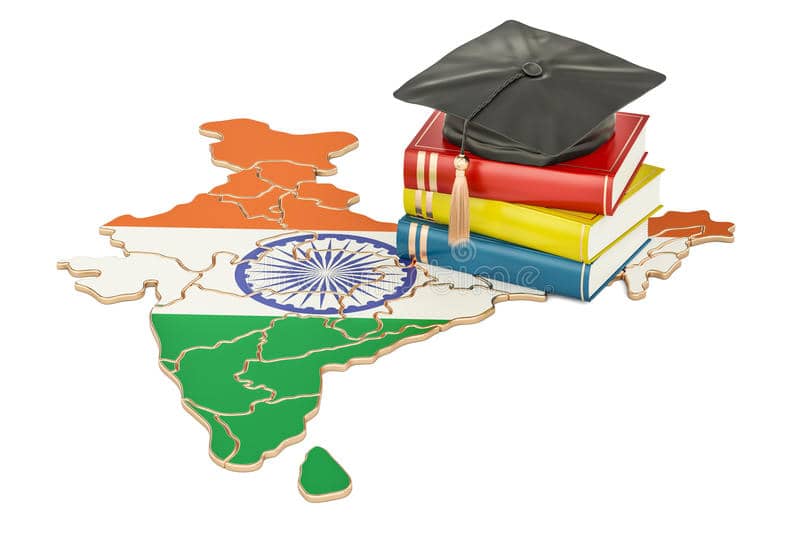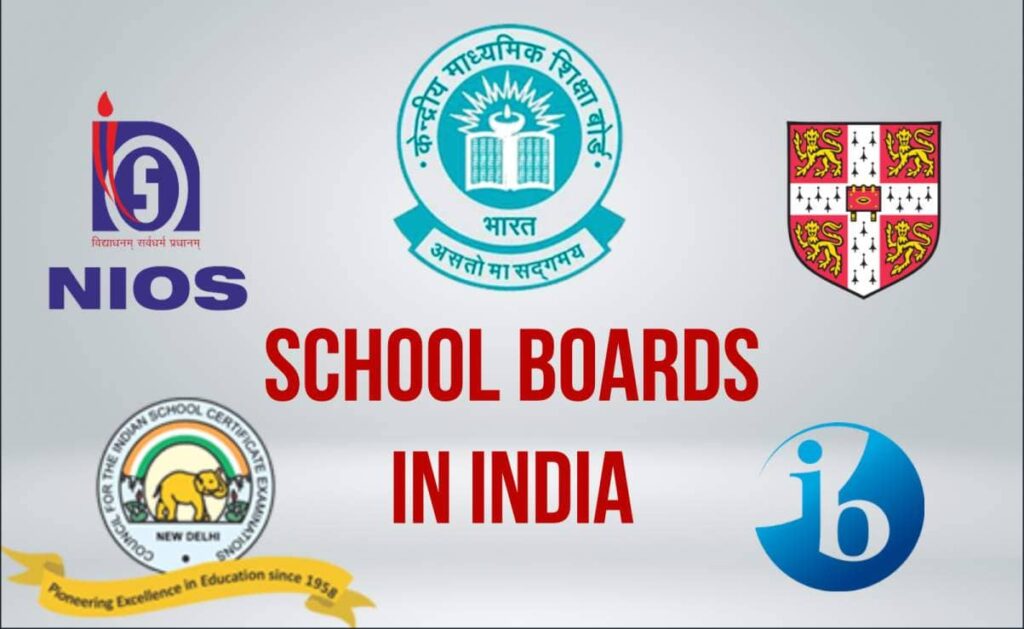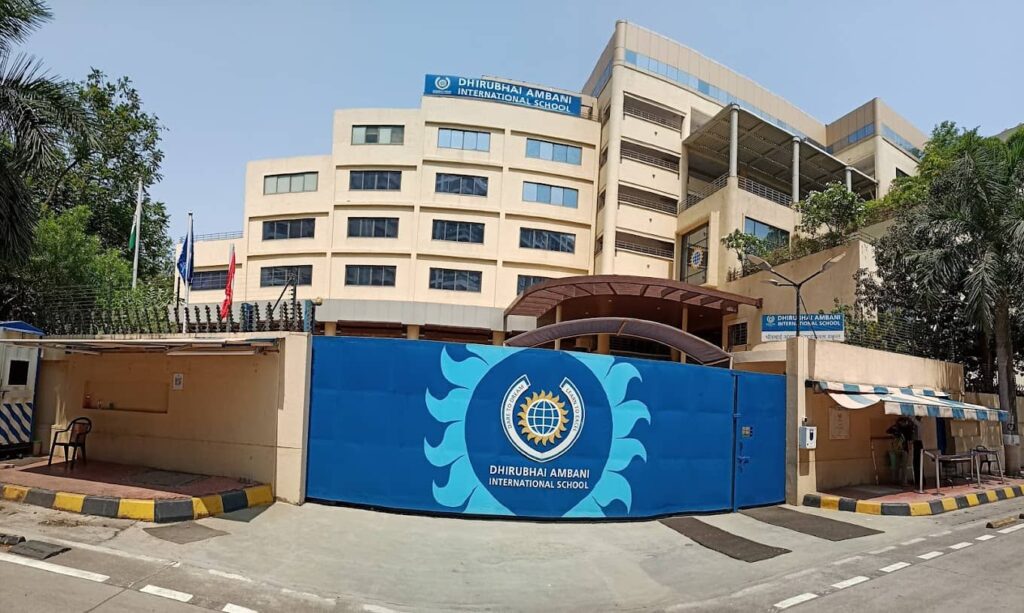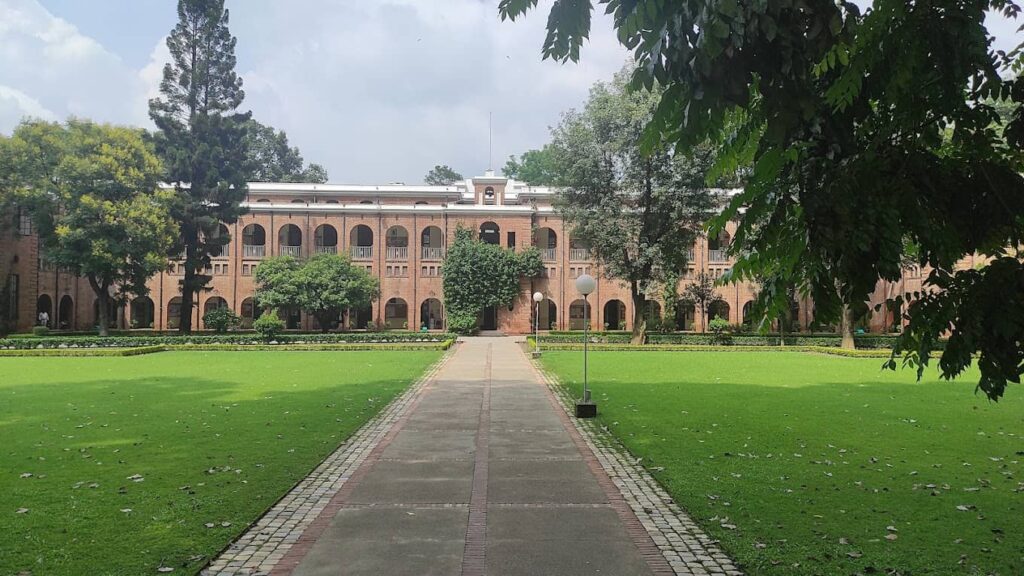When we were small, only boards like CBSE or State Boards were there, but now the Indian education system has grown rapidly, and we have numerous curriculums that many of us haven’t even heard of until now. As big as this education system is, there will be as many questions related to it, such as which board is better, how many CBSE schools are there in India, and about the IB curriculum, which is still new in India but is the need of the future as it’s widely accepted worldwide. So, we are here as a helping hand or your one-stop destination where you can get all the answers to FAQs Related to Education in India 2024-25. Let’s get started.

Table of Contents
Answers to FAQs Related to Education in India 2024-25
1. How many education Boards are there in India?

There are several education boards in India, including:
- Central Board of Secondary Education (CBSE)
- Indian Certificate of Secondary Education (ICSE)
- State Boards of Education (varies by state)
- National Institute of Open Schooling (NIOS)
- International Baccalaureate (IB)
- Cambridge Assessment International Education (CAIE)
- Council for the Indian School Certificate Examinations (CISCE)
- International General Certificate of Secondary Education (IGCSE).
These are some of the major education boards in India, but there may be other local or specialised boards as well.
2. How to choose the right school for your kids?
Choosing the right school for your child involves several considerations. Here are some steps to help you make the decision:
- Research: Begin by researching different schools in your area, including public, private, and charter schools. Look into their academic programs, extracurricular activities, facilities, reputation, fee structure, and distance from your home.
- Prioritise: Consider what factors are most important to you and your child, such as academic rigour, location, size of the school, values and philosophy, extracurricular offerings, fee affordability, and proximity to your home or workplace.
- Visit Schools: Schedule visits to potential schools to get a feel for the campus, meet teachers and administrators, and observe classes in session. Pay attention to the school culture, the interaction between students and teachers, and the overall atmosphere. Also, inquire about transportation options if the school is not within walking distance.
- Ask Questions: Don’t hesitate to ask questions about curriculum, teaching methods, discipline policies, opportunities for parent involvement, and extracurricular activities available. Inquire about additional costs associated with extracurriculars and any financial aid or scholarship options available.
- Consider Your Child’s Needs: Take into account your child’s personality, interests, learning style, and any special needs or preferences they may have. Choose a school that will support and nurture their individual growth and development, including their interests in extracurricular activities.
- Seek Feedback: Talk to other parents, neighbours, and community members about their experiences with local schools. Consider reading online reviews and testimonials as well to gauge the school’s reputation and parent satisfaction.
- Trust Your Instincts: Ultimately, trust your instincts and choose the school that feels like the best fit for your child and family, considering all factors including fee affordability, distance, and extracurricular opportunities. Remember that every child is unique, and what works for one may not work for another.
By following these steps and carefully considering your options, you can make an informed decision and choose the right school for your child’s education and future success.
3. How are international Schools different?

International schools are different from other schools in several ways:
- Global Curriculum: International schools typically follow a global curriculum such as the International Baccalaureate (IB) or Cambridge International Examinations (CIE), which focuses on providing a broad and balanced education with an international perspective. This curriculum often emphasises critical thinking, creativity, and intercultural understanding.
- Diverse Student Body: International schools attract students from diverse cultural and linguistic backgrounds, creating a multicultural learning environment. This exposure to different perspectives and cultures fosters global awareness and understanding among students.
- Qualified Faculty: International schools often employ highly qualified and experienced teachers from around the world who are trained to teach in international contexts. These teachers bring a wealth of knowledge and expertise to the classroom, enriching the learning experience for students.
- Modern Facilities: International schools typically have state-of-the-art facilities and resources to support teaching and learning, including well-equipped classrooms, libraries, science labs, technology centres, and sports facilities.
- Focus on Languages: International schools often offer a strong emphasis on language learning, with opportunities to study multiple languages including English, the language of instruction, as well as other languages such as Spanish, French, Mandarin, or Arabic.
- Global Perspective: International schools promote a global perspective and encourage students to think critically about global issues and challenges. They often organise international exchange programs, cultural events, and service-learning projects to further broaden students’ horizons and develop their global citizenship skills.
Overall, international schools provide a unique educational experience that prepares students to thrive in a globalised world, fostering qualities such as open-mindedness, adaptability, and cross-cultural communication skills.
4. Why is CBSE better than ICSE?
The preference between CBSE and ICSE depends on individual preferences and academic goals. Some may prefer CBSE for its national uniformity, strong focus on science and mathematics, structured syllabus, preparation for competitive exams, and wide range of language options. However, ICSE also offers advantages such as a broader curriculum, emphasis on English proficiency, and holistic education.
5. How many CBSE Schools in India?
As of the latest available data, there are more than 28,000 schools in India affiliated with the CBSE (Central Board of Secondary Education), making it one of the largest education boards in the country.
Let’s find out the number of CBSE schools in each state of India.
| S. No. | State | Number of CBSE Schools |
| 1 | Uttar Pradesh | 4150 |
| 2 | Delhi | 2199 |
| 3 | Haryana | 2207 |
| 4 | Karnataka | 1335 |
| 5 | Punjab | 1537 |
| 6 | Tamil Nadu | 1478 |
| 7 | Kerala | 1461 |
| 8 | Maharashtra | 1344 |
| 9 | Rajasthan | 1341 |
| 10 | Madhya Pradesh | 1564 |
| 11 | Andhra Pradesh | 1664 |
| 12 | Gujrat | 621 |
| 13 | Telangana | 479 |
| 14 | Jharkhand | 558 |
| 15 | Uttarakhand | 881 |
| 16 | Chhattisgarh | 783 |
| 17 | Odisha | 705 |
| 18 | West Bengal | 415 |
| 19 | Arunachal Pradesh | 339 |
| 20 | Himachal Pradesh | 330 |
| 21 | Assam | 329 |
| 22 | Sikkim | 247 |
| 23 | Chandigarh | 171 |
| 24 | Tripura | 170 |
| 25 | Jammu and Kashmir | 166 |
| 26 | Manipur | 83 |
| 27 | Nagaland | 44 |
| 28 | Meghalaya | 27 |
| 29 | Mizoram | 21 |
| 30 | Goa | 16 |
6. What are the different programs IB offers?
The International Baccalaureate (IB) offers various programs for students:
- Primary Years Programme (PYP): For students aged 3 to 12, focusing on developing inquiry skills and a love for learning.
- Middle Years Programme (MYP): Aimed at students aged 11 to 16, promoting critical thinking, creativity, and international-mindedness.
- Diploma Programme (DP): For students aged 16 to 19, offering a challenging curriculum leading to an internationally recognized diploma.
- Career-related Programme (CP): Combines academic subjects with practical skills and career-related experiences, preparing students for higher education or employment.
7. Which are the largest school chains in India?
There are many Chains of School in India, we are listing out Top 5 School Chains in India which are:
- Vidya Bharti School: Headquarters in Lucknow (13,000+ schools)
- Kendriya Vidyalaya: Headquarters in New Delhi (1253+ schools)
- Ryan International Group of Institutions: Headquarters in Mumbai (150+ schools)
- Podar Education Network: Headquarters in Mumbai (140+ schools)
- Jawahar Navodaya Vidyalaya: Headquarters in Noida (660+ schools)
Podar Group of Schools, Vidya Bharti Schools, and Kendriya Vidyalayas are the largest networks of schools in India.
8. Are residential schools Good? Explain it.

Residential schools can offer a range of benefits, but whether they are considered “good” depends on various factors and individual preferences. Here are some key points to consider:
- Structured Environment: Residential schools often provide a highly structured environment with set schedules for academics, extracurricular activities, and personal development. This can help students develop discipline, time management skills, and independence.
- Focused Learning: Students in residential schools typically have more focused learning environments due to fewer distractions compared to day schools. This can lead to better academic performance and a deeper understanding of subjects.
- Access to Resources: Residential schools often have access to a wide range of resources, including libraries, laboratories, sports facilities, and expert faculty. This can enhance the overall learning experience and opportunities for growth.
- Holistic Development: Many residential schools emphasize holistic development by offering a balanced curriculum that includes academics, sports, arts, and life skills. This approach can help students discover and nurture their talents and interests beyond academics.
- Social Skills: Living in a residential school allows students to interact closely with peers from diverse backgrounds. This fosters social skills, cultural understanding, teamwork, and lifelong friendships.
However, it’s essential to note that residential schools may not be suitable for everyone. Factors such as homesickness, adjustment to living away from family, and the need for individualised attention should be considered. Additionally, the quality of education, facilities, safety measures, and overall ethos of the residential school play a crucial role in determining whether it is a good option for a particular student.
9. How are private schools better than Government schools?
Private schools are often considered better than government schools for several reasons:
- Quality of Education: Private schools often have smaller class sizes, well-qualified teachers, and better infrastructure, leading to a higher quality of education.
- Focus on Individual Needs: Private schools can provide more personalized attention to students, catering to their individual learning styles and needs.
- Innovative Teaching Methods: Private schools often adopt innovative teaching methods and technologies to enhance the learning experience.
- Extracurricular Activities: Private schools tend to offer a wider range of extracurricular activities such as sports, arts, music, and clubs, promoting holistic development.
- Parental Involvement: Private schools often encourage and facilitate active parental involvement, fostering a strong partnership between parents, teachers, and students.
- Better Facilities: Private schools typically have better facilities such as libraries, laboratories, sports amenities, and modern classrooms, enhancing the overall educational environment.
- Higher Academic Standards: Private schools may have higher academic standards and expectations, leading to improved academic performance and opportunities for students.
However, it’s important to note that the quality of education can vary widely among private schools, and factors such as affordability, accessibility, and the specific needs of the child should also be considered when choosing between private and government schools.
10. Give names of school boards and 10th exams. Explain the difference better.
We often hear people mistakenly refer to exams by the board’s name and vice versa. To clarify:
CBSE is the name of the board, and its 10th-grade exam is called the “CBSE 10th exam.”
Similarly, IB is the board’s name, and the 10th-grade exam within the IB framework is referred to as the “MYP exam,” as MYP stands for Middle Years Programme and is not the board’s name.
| BOARD | 10th Exam Names |
| CBSE | 10th Exam |
| CISE | ICSE |
| Cambridge | IGCSE |
| IB | MYP eAssessment |
| NIOS (open schooling) | NIOS 10th |
Conclusion
We have addressed many questions related to Indian education. If you have more inquiries, feel free to reach out to us. Additionally, you can explore more informative blogs on our Website.


